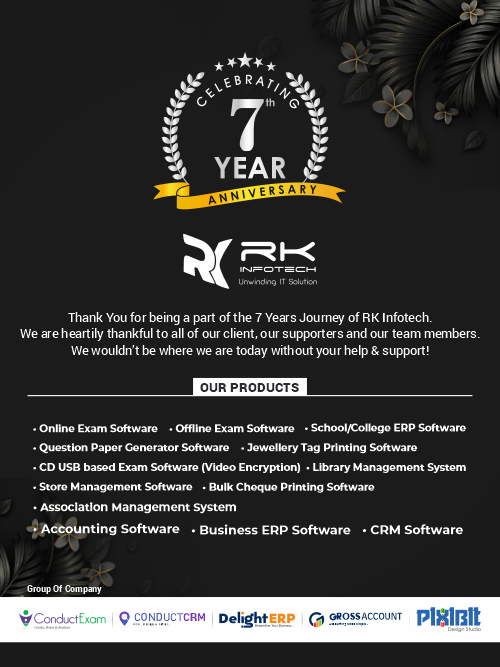Role of IT companies in this Digital World
Introduction
Information Technology (IT) companies play a vital role in today’s world. IT companies are becoming a big part of increasing socioeconomic opportunities. Information technology helps to begin and grow the commerce and business sector and generate the maximum possible output.
The time taken by different companies to generate business is now increasing with advancements in Information technology. It gives electronic security, storage, and effective communication.
To perform the work, Information technology needs computer applications. Computers connect IT to the different organizations of the world. It helps the employees to maintain records of their various clients of several companies.
Artificial intelligence, cloud computing, home, and business security blockchain, drones, and IoT are a few of the developing trends today that are revolutionizing the industry. IT is a dynamic industry and those who want to stay at the forefront must adapt these innovations to their uses whether personal or otherwise.
The following are the importance of IT in the business sector:
- Better communication
- The new way of doing business
- Bringing efficiency to business
- Security in business
- Technology keeps employees engaged
It’s important to understand the different roles IT companies have in this digital world.
1. Tech Support and Consultancies
One of the biggest types of work in IT companies is tech support. Now, this can be anything from a local computer repair person to a larger company that specializes in servicing other companies’ IT systems.
In places where access to consumer technology is more common, there’s a lot of competition in the IT market, so you can find affordable IT support in London, Paris, NY, and every other major city.
There are more chances for people who want to provide support and maintenance for them – from the local computer repair guy to PC doctors who do it as their main source of income. In countries where infrastructure is still developing and there’s a lot of need for advancement, larger companies that specialize in enterprise-level IT systems are a hard.
These systems help businesses function by giving them efficient tools that allow them to communicate with customers, provide a better customer experience, and help them run their businesses more successfully.
2. Software Development
Another huge role in IT is software development. This can be anything from app developers working on a mobile phone that you use to talk with your friends, to massive companies who develop the infrastructure of the internet, so they can sell you access to it.
These companies are called internet service providers or ISPs. They help you gain ISPs to the internet so that you can do whatever it is you want to do online. Developers are an essential part of this system because they design and develop apps or programs that people to use technology for their planned purposes.
3. Hardware Design and Manufacturing
There is also hardware design and manufacturing – which is important for powering all the tech that people use every day. This can range from big companies you’ve mostly heard of like Apple or Samsung who manufacture products that millions of people use, to smaller companies that specialize in niche products like watches or more obscure electronics.
This industry not only depends on IT professionals but also mechanical engineers and other skilled workers who are trained to recognize how physical hardware works – which is difficult for the design of things like processors or circuit boards that aren’t just meant to function but need to be designed with specific features in mind.
4. Data Analytics and Processing
A lot of which happens on a server that a company uses to store information about their customers or finances. This can be done on the consumer or enterprise level, depending on what type of information you want to protect and how sensitive it is.
Processing and analyzing data allows companies to make smarter decisions about their business, identify problems with their systems, or spot trends that they can use to improve the customer experience.
5. Security and Risk Management
Security is a huge part of IT companies because everything that’s connected to the internet is possibly vulnerable to being hacked or breached, which can have large consequences for both individuals and companies.
To combat this, there are IT experts who focus on protecting computers from hackers as well as figuring out how to protect them from spreading viruses or stealing information. Also, companies that store a lot of data need to have a system in place that makes it easy to recover their data if something happens to it – so they’ll often keep backups of everything on multiple servers, too.
6. Data Architect
A data architect plays a key role in today’s large data world. It is the architect behind data architecture, creating blueprints for data management systems. Data architects design a plan to integrate, centralize, protect, and maintain data.
As industries are increasingly going through a huge digital transformation, the role of data architects has become pivotal. They permit businesses to access key information in the right place, at the right time.
7. Cloud Specialists
Cloud specialists are responsible for maintaining cloud-related issues within an organization. They accomplish and maintain server and network infrastructures. As a cloud specialist deals with a company’s information and services to be migrated to the cloud, their role is important for continued operation in a digital landscape.
Migrating a business application to cloud infrastructures is an important step toward digital transformation, cloud specialists help companies to make faster and more successful cloud migration.
8. Digital Product Managers
The success of a product team lies in the capability of a digital product manager. They supervise the entire life cycle of a product. A digital product manager is also responsible for storytelling, and crafting product narratives while owning the entire product from top to bottom to make sure an effective user experience (UX).
9. Financial Analyst
Financial analysts make business recommendations for an organization based on analyses they carry out on factors like market trends. They communicate the financial value of digital transformation strategies, create a business case, and present an accountability matrix.
They are essentially responsible for creating financial models that can predict the outcome of business decisions. Financial analysts work with all members and other finance professionals to make sure that the team looks at transformation activities from a financial standpoint.
10. Solution Architect
A solutions architect is an expert and one of the most essential and client-facing roles in the IT industry. They are the technology leaders who design the IT architecture of a software system.
As digital transformation demands particular expertise and a set of practices to align business focus with technology solutions, solution architects perform a crucial role in explaining how the adoption of these practices can help solve business issues.
11. Chief Digital Officer
A chief digital officer (CDO) focuses on creating new business opportunities, revenue streams, and customer services by utilizing digital technologies. The role of a CDO can be found operating under distinct titles such as digital strategist, digital marketing officer, and digital general manager.
CDOs are generally responsible for helping the enterprise to develop and execute a close-knit digital strategy.
12. UX Designers
As the user experience is important for a company’s product success, a UX designer plays a pivotal role in the entire process of acquiring and integrating a product. UX designers work as part of a huge product team and help bridge the gap between the user, the development team, and key business stakeholders.
They usually advocate for the end-user. They should understand the customer journey and develop an experience. They also make sure that IT solutions have a customer-focused design.
13. Database Administrator
Database administrators specialized in storing and organizing data. They include everything required to manage a database and make it available as needed. They install and upgrade the database server and application tools.
As database administrator requires knowledge of database queries, database theory, database design, and more, they make sure compliance with database vendor license agreement, including many installations, while taking care of licensing renewals.
14. Systems Integrators
The role of a systems integrator is to link component subsystems and make sure they work together as a unit. Systems integrators design, develop, synthesize, and implement technological applications that are customized to meet an organization’s requirements.
Their role can be found in different fields, but are usually used in information technology such as computer networking, the defense industry, the mass media, enterprise application integration, business process management, or manual computer programming.
Conclusion
While this is hardly a considerable list of all the roles that different people play in IT companies, it gives you an idea of how large-scale and complex things get once you start digging into this world. Everything from what we do on our phones to working at a company is greatly affected by their systems and tools – which is why we need to be informed of how they work and what role we play in using them.










